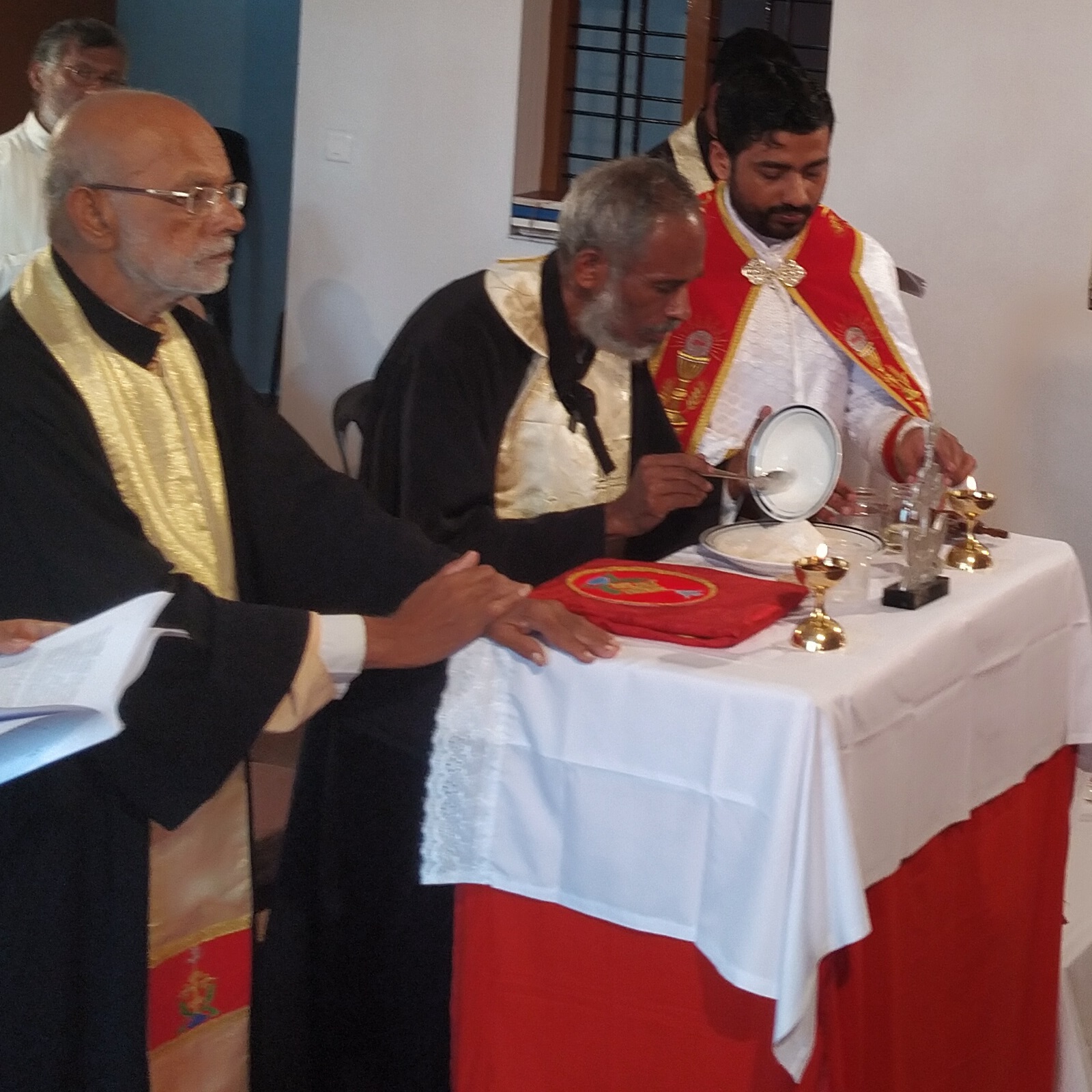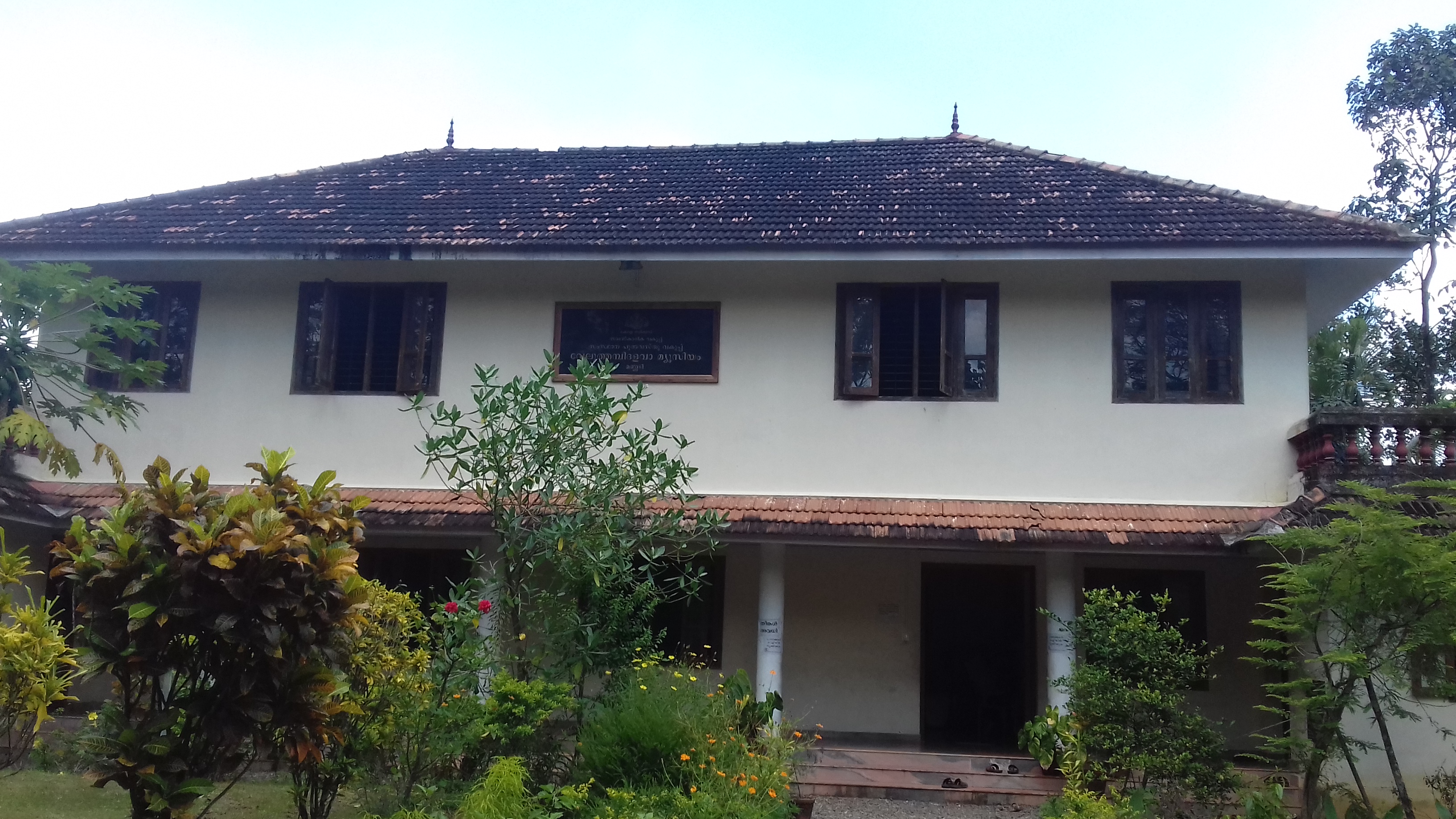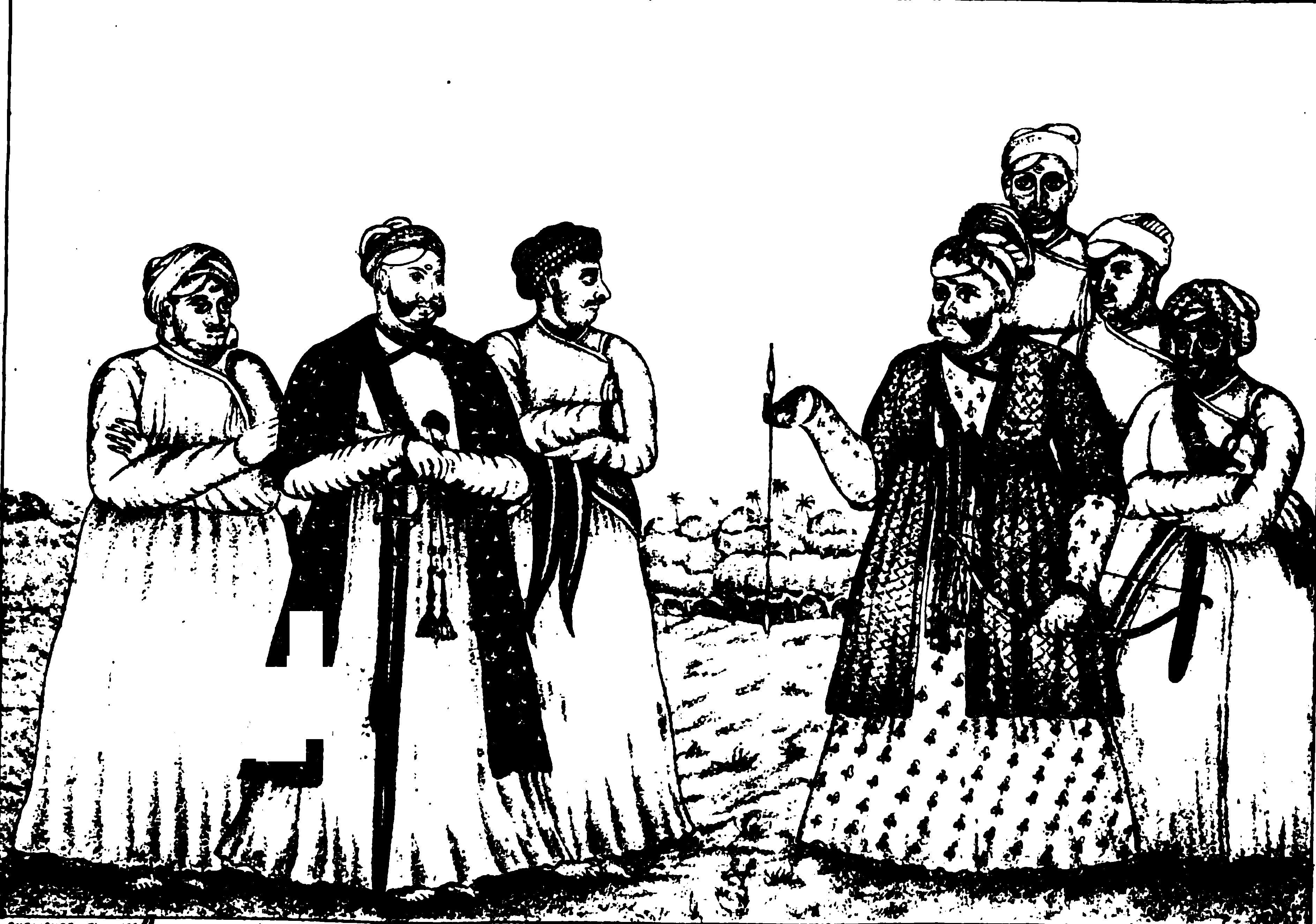|
Thachil Matthoo Tharakan
Thachil Mar Matthoo Tharakan (1741–1814) was a Saint Thomas Christian merchant, social leader and minister who played a key role in Kerala, especially in its Travancore and Cochin regions, in India towards the latter part of the 18th century and early 19th century. He relentlessly worked to bring about a reunification in his community which was divided into Catholic ('' Pazhayakūr'') and Jacobite (''Puthenkūr'') after the Coonan Cross Oath of 1653. He organized his community against the colonialist attempts of Portuguese and played a prominent role in the assembly of Catholic Saint Thomas Christians at Angamāly that paved the way for the establishment of independent Syro-Malabar hierarchy. Trader and exporter Matthoo belonged to Alangad, near North Kuthiathode, in the present Paravur Taluk of Ernakulam District. He was born into a prosperous Syro-Malabar Christian family in 1741 as the son of Thachil Thariath and Ukken Itti Anna. He did business successfully, with the h ... [...More Info...] [...Related Items...] OR: [Wikipedia] [Google] [Baidu] |
Alangad
Alangad is a village located in Paravur Taluk of Ernakulam District in the Indian state of Kerala. It lies almost in the middle of North Paravur and Aluva. The Kochi city is 15 km away from Alangad. Etymology The name Alangad has been derived from ''alam'' meaning ''sugarcane'' and ''gad'' which refers to the Malayalam word ''കാട് aadu' ''meaning jungle''. History Alangad was once famous in the state for its sugarcane fields. In the past, Alangad was a small kingdom ruled by the Alangad Kings. Visscher refers the battle that took place between the Alangad King (Alangad Mootha Karthakal) and the Paravoor (N.Parur) King in his 'Letters from Malabar' written in 1720CE. In the last decade of the 16th century, a Syrian Christian named Mathoo Chakkarayakathoottu was the Akambady Sena Nayakar(Captain of Guards) of the Alangad Raja's Christian subjects. During the time of Diamper Synod(Udayamperur Sunnahados) a milestone in the history of St.Thomas Christians, Akambady Na ... [...More Info...] [...Related Items...] OR: [Wikipedia] [Google] [Baidu] |
Syro-Malabar
lat, Ecclesia Syrorum-Malabarensium mal, മലബാറിലെ സുറിയാനി സഭ , native_name_lang=, image = St. Thomas' Cross (Chennai, St. Thomas Mount).jpg , caption = The Mar Thoma Nasrani Sliva or Saint Thomas christian cross, the symbol of the Syro-Malabar Church. , abbreviation=SMC, type = Self-governing church ('' sui iuris'') , main_classification = Eastern Catholic , orientation = Eastern Christianity( Syriac Christianity) , scripture = , polity = Episcopal polity , governance=Holy Episcopal Synod of the Syro-Malabar Church, theology = East Syriac theology , leader_title = Pope , leader_name = Francis , leader_title1 = Major Archbishop , leader_name1 = George Alencherry , leader_title3 = Administration , leader_name3 = Major Archiepiscopal Curia , area = India and Nasrani Malayali diaspora , ... [...More Info...] [...Related Items...] OR: [Wikipedia] [Google] [Baidu] |
Mar Joseph Kariattil
Kariattil Mar Iousep, alternatively written as Mar Joseph Kariattil, (5 May 1742 – 10 September 1786) was the first native Indian to be appointed as Metropolitan of Kodungalloor (Cranganore) for Syrian Catholics in the territory now comprising Kerala, India. Joseph Kariattil was born at Alengad, near Aluva in present-day central Kerala. He had his initial religious education at the Seminary at Alangad. Later he was sent to the Propaganda College of Pontifical Urban University, Rome, in 1755 when he was barely 13 years old. There he was ordained as a priest, and he took doctorate in Philosophy, Theology and Canon law from there. He was the first Indian national in history to receive multiple doctoral degrees in 18th century. Before 1765 he also authored, under the pen-name of Giuseppe Chariati Indiano, a grammar of the Malayalam language in Portuguese, preserved in the Bibliotheca Nazionale in Rome. He returned to India in 1766. He was then appointed as a Malpan at Alangad M ... [...More Info...] [...Related Items...] OR: [Wikipedia] [Google] [Baidu] |
Mannadi
Mannadi is a village in Kadampanad grama panchayat at Adoor Taluk, Pathanamthitta District of Kerala, India. Location Mannadi is from Kollam and from Adoor. It is equi-distance from Kadampanad and Enath. The nearest airport is Trivandrum International Airport, from Mannadi. History Velu Thampi Dalawa (Velayudhan Chempakaraman Thampi) (1765–1809) was the Dalawa or Prime Minister of the Indian kingdom of Travancore between 1802 and 1809 during the reign of His Highness Maharajah Bala Rama Varma Kulasekhara Perumal. He is best known for being one of the earliest individuals to rebel against the British East India Company's supremacy in India. He had committed suicide at Mannadi Temple, to avoid capture by the British British may refer to: Peoples, culture, and language * British people, nationals or natives of the United Kingdom, British Overseas Territories, and Crown Dependencies. ** Britishness, the British identity and common culture * British English, .... Dalawa ... [...More Info...] [...Related Items...] OR: [Wikipedia] [Google] [Baidu] |
Velu Thampi
Velayudhan Chempakaraman Thampi of Thalakulam (1765–1809) was the Dalawa or Prime Minister of the Indian kingdom of Travancore between 1802 and 1809 during the reign of Bala Rama Varma Kulasekhara Perumal. He is best known for being one of the earliest individuals to rebel against the British East India Company's authority in India. Early life Velayudhan Thampi was born in a Nair family to Manakkara Kunju Mayatti Pillai and his wife Valliyamma Pillai Thankachi of Thalakkulam. He was born on 6 May 1765 in the village of Thalakkulam in Travancore which is in the present day district of Kanyakumari in Tamilnadu then a southern district of Travancore State. His full title was "Idaprabu Kulottunga Kathirkulathu Mulappada Arasarana Irayanda Thalakulathu Valiya Veettil Thampi Chempakaraman Velayudhan" being from the family that held the ownership of the province and the high title of ''Chempakaraman'' for their services to the modern state created by Maharajah Marthanda Varma. ... [...More Info...] [...Related Items...] OR: [Wikipedia] [Google] [Baidu] |
Jayanthan Sankaran Nampoothiri
Odiery Jayanthan Sankaran Nampoothiri was an 18th-century Dalawa of the Travancore, a former Indian kingdom. Background Jayanthan Nampoothiri was a migrant from Zamorin kingdom who settled in Travancore during Tipu Sultan's invasion. Having the experience of working in Zamorin's palace, Nampoothiri could earn respect from Travancore royal family also. Rise to and fall from power Soon after the death of Dharma Raja Karthika Thirunal Rama Varma on 17 February 1798, Balarama Varma was enthroned as Maharaja of Travancore. Bala Rama Varma was one of Travancore's least popular sovereigns whose reign was marked by unrest and various internal and external problems to the state.Travancore State Manual by Nagam Aiya He became King at the young age of sixteen and came under the influence of Jayanthan Nampoothiri. One of the first acts of atrocities during his reign was the murder of Raja Kesavadas, the existing Dewan of Travancore on 21 April 1799. Jayanthan Nampoothiri was appointed as ne ... [...More Info...] [...Related Items...] OR: [Wikipedia] [Google] [Baidu] |
Deepika (newspaper)
''Deepika'' (; known as ''Nasrani Deepika'' till 1939) is an Indian Malayalam-language newspaper, which is one of the oldest newspapers published in India. Started in 1887, it is the oldest Malayalam newspaper now in circulation. Deepika publishes editions from Kottayam, Kochi, Kannur, Thrissur, Thiruvananthapuram and Kozhikode. History Deepika newspaper was started in 1887 as Nasrani Deepika by a Syrian Catholic priest, Nidhirikkal Manikkathanar. Jatiaikya Sangham, an organization formed with the objective of uniting the Pazhayakoor and Puthenkoor communities among the Christians of Kerala, came up with the idea of a newspaper for all the various Christian communities in Kerala. Although this project did not work out, the Catholics in this group sought the permission of Mar Marcelinos, the bishop of Veropoly and started a newspaper. The first issue of the newspaper was published on April 15, 1887. Initially, the newspaper was printed on a wooden printing press at St. Joseph ... [...More Info...] [...Related Items...] OR: [Wikipedia] [Google] [Baidu] |
Tipu Sultan
Tipu Sultan (born Sultan Fateh Ali Sahab Tipu, 1 December 1751 – 4 May 1799), also known as the Tiger of Mysore, was the ruler of the Kingdom of Mysore based in South India. He was a pioneer of rocket artillery.Dalrymple, p. 243 He introduced a number of administrative innovations during his rule, including a new coinage system and calendar, and a new land revenue system, which initiated the growth of the Mysore silk industry. He expanded the iron-cased Mysorean rockets and commissioned the military manual ''Fathul Mujahidin''. He deployed the rockets against advances of British forces and their allies during the Anglo-Mysore Wars, including the Battle of Pollilur and Siege of Srirangapatna. Tipu Sultan and his father used their French-trained army in alliance with the French in their struggle with the British, and in Mysore's struggles with other surrounding powers: against the Marathas, Sira, and rulers of Malabar, Kodagu, Bednore, Carnatic, and Travancore. Tipu's ... [...More Info...] [...Related Items...] OR: [Wikipedia] [Google] [Baidu] |
Dharma Raja
Dharma Raja Karthika Thirunal Rama Varma ( ml, ധർമ്മരാജാ കാർത്തിക തിരുനാൾ രാമവർമ്മ, 1724–17 February 1798) was the Maharajah of Travancore from 1758 until his death in 1798. He succeeded his uncle Marthanda Varma, who is credited with the title of "maker of modern Travancore". During his reign Dharma Raja not only retained all the territories his predecessor had gained but administered the kingdom with success. He was addressed as ''Dharma Raja'' on account of his strict adherence to ''Dharma Sastra'', the Hindu principles of justice by providing asylum to thousands of Hindus and Christians fleeing Malabar during the Mysorean conquest of Malabar. Early life Rama Varma was born in 1724 AD as the son of the Senior Rani of Attingal with her husband Prince Kerala Varma Koil Thampuran of the Kilimanoor palace. He had a brother Prince Makayiram Thirunal, grandfather of Irayimman Thampi, who died young and thus Karthik ... [...More Info...] [...Related Items...] OR: [Wikipedia] [Google] [Baidu] |
Balarama Varma
Avittom Thirunal Bala Rama Varma (c. 17827 November 1810) was a ruler of the Indian princely state of Travancore from 1798 to 1810, succeeding his uncle Maharajah Dharma Raja on 12February 1798. His reign was a time of disturbances and internal and external problems. The revolt of Velu Thampi (who as Dewan negotiated the formal alliance between Travancore and the British East India Company The East India Company (EIC) was an English, and later British, joint-stock company founded in 1600 and dissolved in 1874. It was formed to trade in the Indian Ocean region, initially with the East Indies (the Indian subcontinent and Southea ...) occurred during his rule. His great-granddaughter was the wife of Visakham Thirunal. Two ranis were adopted during the reign of Dharma Raja. They were Bharani Thirunal Parvathi Bayi and Uthram Thirunal Umayamma Bayi as the sisters of Avittom Thirunal. These princesses were the daughters of Chathayam Nal Mahaprabha Amma. References ;Bibl ... [...More Info...] [...Related Items...] OR: [Wikipedia] [Google] [Baidu] |
Dharma Raja Of Travancore
Dharma Raja Karthika Thirunal Rama Varma ( ml, ധർമ്മരാജാ കാർത്തിക തിരുനാൾ രാമവർമ്മ, 1724–17 February 1798) was the Maharajah of Travancore from 1758 until his death in 1798. He succeeded his uncle Marthanda Varma, who is credited with the title of "maker of modern Travancore". During his reign Dharma Raja not only retained all the territories his predecessor had gained but administered the kingdom with success. He was addressed as ''Dharma Raja'' on account of his strict adherence to ''Dharma Sastra'', the Hindu principles of justice by providing asylum to thousands of Hindus and Christians fleeing Malabar during the Mysorean conquest of Malabar. Early life Rama Varma was born in 1724 AD as the son of the Senior Rani of Attingal with her husband Prince Kerala Varma Koil Thampuran of the Kilimanoor palace. He had a brother Prince Makayiram Thirunal, grandfather of Irayimman Thampi, who died young and thus Karthi ... [...More Info...] [...Related Items...] OR: [Wikipedia] [Google] [Baidu] |
Saint Thomas Christians
The Saint Thomas Christians, also called Syrian Christians of India, ''Marthoma Suriyani Nasrani'', ''Malankara Nasrani'', or ''Nasrani Mappila'', are an ethno-religious An ethnoreligious group (or an ethno-religious group) is a grouping of people who are unified by a common religious and ethnic background. Furthermore, the term ethno-religious group, along with ethno-regional and ethno-linguistic groups, is a s ... community of Indian Christians in the state of Kerala (Malabar region), who, for the most part, employ the East Syriac Rite, Eastern and West Syriac Rite, Western liturgical rites of Syriac Christianity. They trace their origins to the evangelistic activity of Thomas the Apostle in the 1st century. The Saint Thomas Christians had been historically a part of the hierarchy of the Church of the East but are now divided into several different Eastern Catholic Church, Eastern Catholic, Oriental Orthodoxy, Oriental Orthodox, Protestantism, Protestant, and independent ... [...More Info...] [...Related Items...] OR: [Wikipedia] [Google] [Baidu] |




